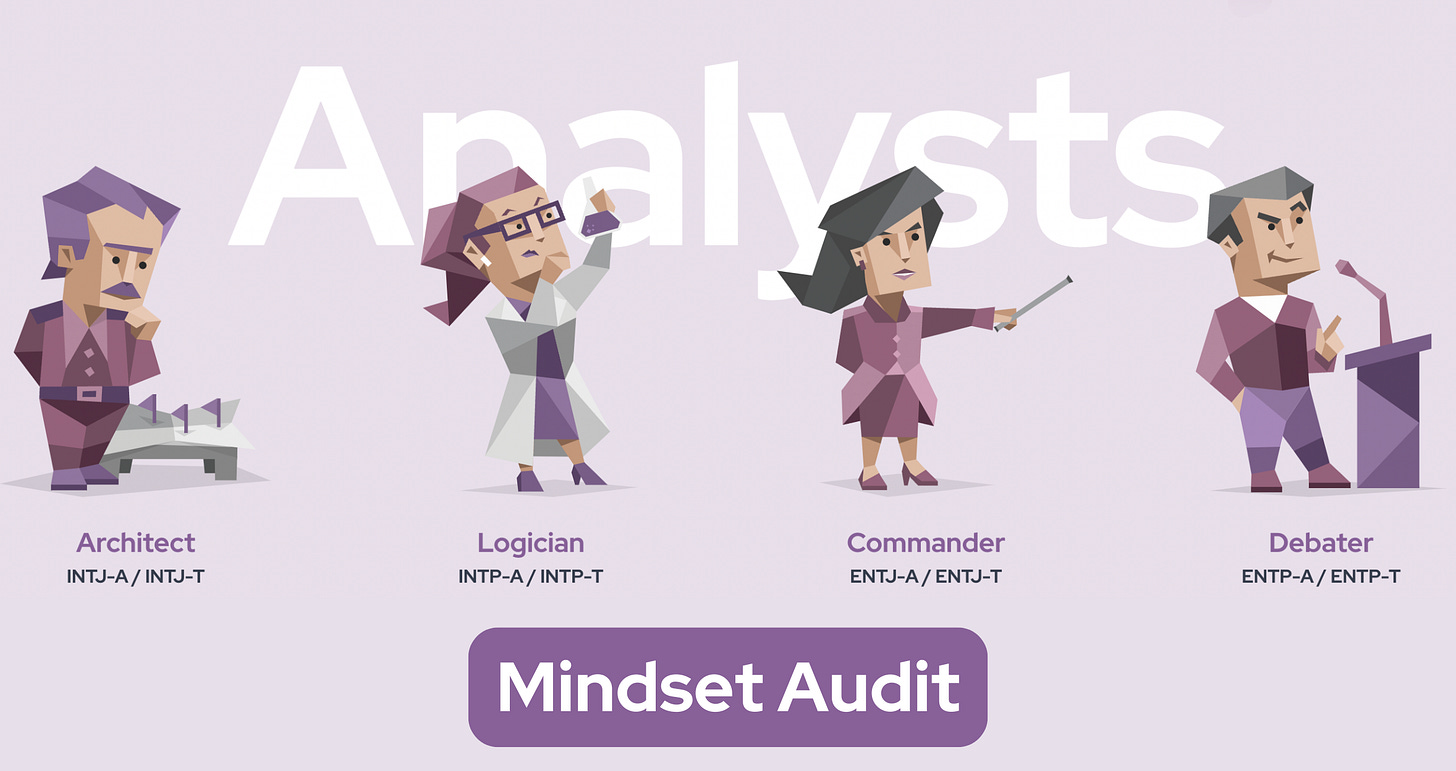How to Help Analyst Personalities Think Critically
Practical Tips to Help INTJs, INTPs, ENTJs, and ENTPs Expand Their Thinking
TLDR:
You can help your most logical team members avoid getting stuck in familiar thinking patterns
Analysts can trust their reasoning too much, missing creative solutions and fresh perspectives
Each Analyst type needs different approaches to expand their thinking without losing their rational edge
Simple questioning techniques build intellectual humility while keeping their mental strengths sharp
Small changes in how you challenge these team members can unlock breakthrough thinking on your biggest problems
During our 5-Day Mindset Audit, you learned to question your own mental models and cognitive biases. Now it’s time to help your team members do the same.
Your Analyst team members (INTJ, INTP, ENTJ, and ENTP) face a unique challenge – their logic can sometimes work against them when they become overconfident in their reasoning abilities.
Today, we’ll cover:
How to spot Analyst team members
Why their analytical strengths can create thinking blind spots
How to help them question their own assumptions
A specific leadership tip for each Analyst personality type
How to Spot Analyst Team Members
Your team member might be an Analyst if they:
Choose logical analysis over feelings when making decisions
Question assumptions and challenge the usual way of doing things
Get excited about big ideas and complex systems
Love intellectual debates and discussions
Always want to improve and optimize how things work
Create frameworks to understand tricky situations
For more tips on how to recognize and work effectively with all Analyst personalities, check out our past Identifying Personalities at Work series.
How the Analyst Role Shapes Thinking Styles
Analysts share the Intuitive and Thinking personality traits.
The Intuitive trait means they naturally look beyond surface details to spot underlying connections. They see possibilities others miss and build big-picture frameworks that explain complex situations.
The Thinking trait makes them logic-driven. They trust rational analysis over emotions. They want decisions based on objective data and consistent principles.
Together, these traits make Analysts quite good at creating logical systems that explain how things work. They spot patterns across different situations and build rules that predict outcomes. This makes them excellent strategic thinkers and problem-solvers.
But Analysts are especially prone to confirmation bias because they trust their logical reasoning so much. When they reach a conclusion through logical analysis, they feel confident it’s correct. After all, they used objective reasoning, not emotions or gut feelings. This confidence can make them stop looking for contradictory evidence or dismiss other ideas as “illogical”. Even ENTPs, who enjoy challenging their own ideas and playing devil’s advocate, can fall into confirmation bias by dismissing people or ideas that can’t hold up to their rapid-fire intellectual challenges.
Type-Specific Approaches to Building Critical Thinking
While all Analysts share the Intuitive and Thinking personality traits, how these traits combine with others creates unique thinking blind spots for each type.
Here’s one leadership tip for each Analyst personality type to help them audit their default thinking patterns:
Keep reading with a 7-day free trial
Subscribe to Leadership by 16Personalities to keep reading this post and get 7 days of free access to the full post archives.





